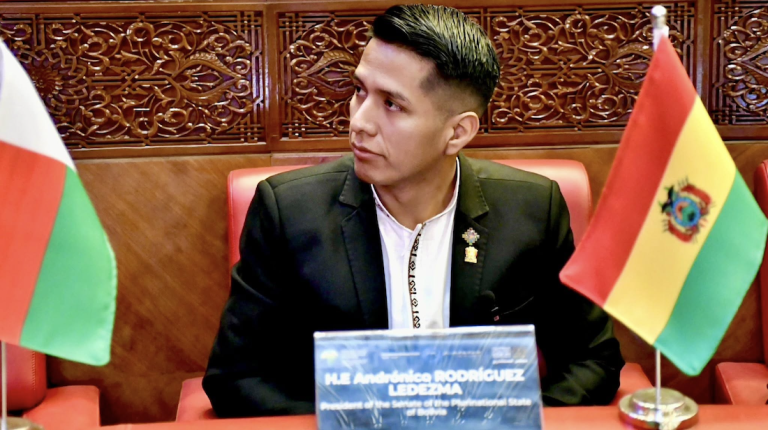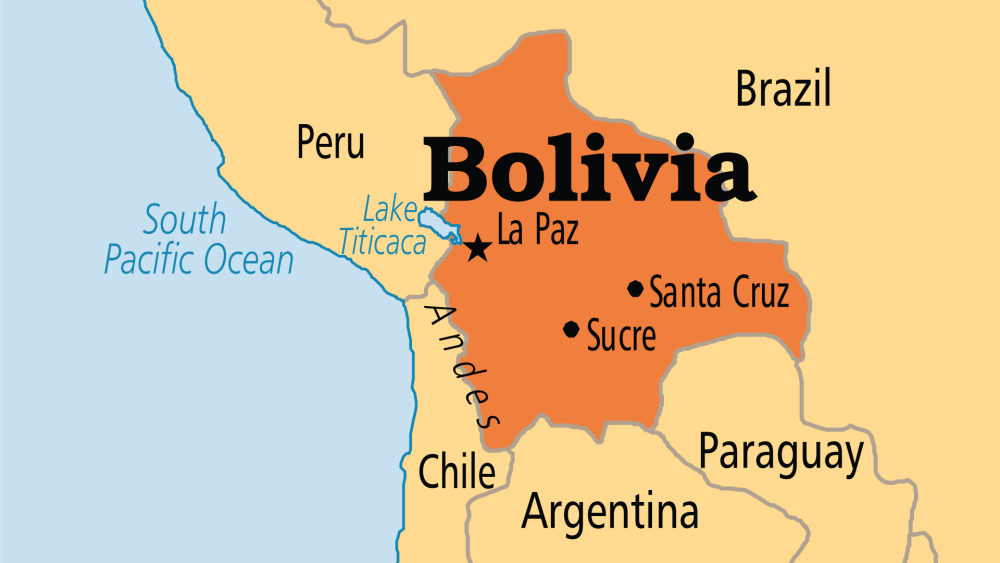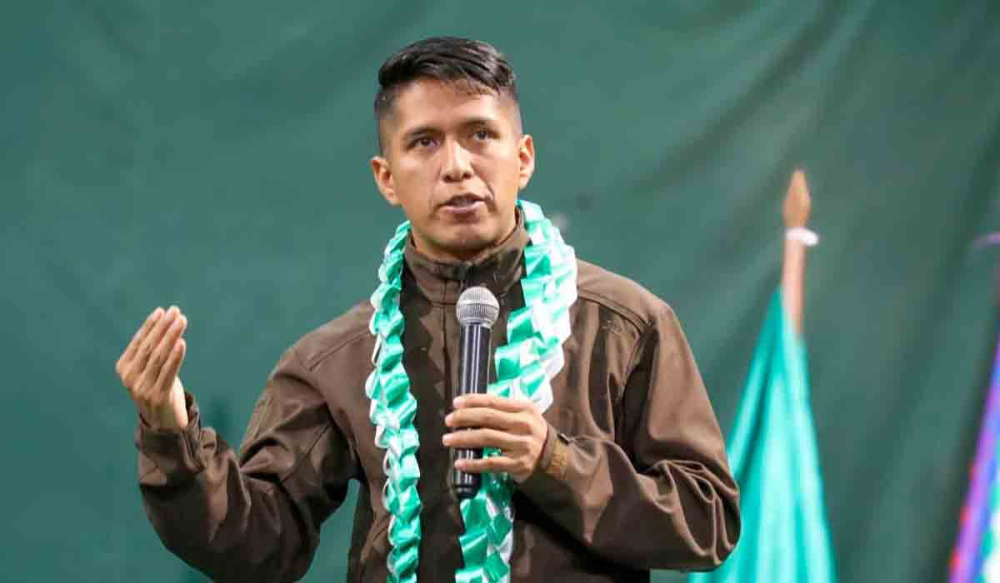
La Paz — Bolivia’s political scene has sharply fractured following Senate President Andrónico Rodríguez’s announcement on May 3 that he will run for president in the August 17 general election.
The 37-year-old Rodríguez declared his candidacy in Oruro, signaling a dramatic break with his former mentor, ex-president Evo Morales, and deepening divisions within the ruling Movement for Socialism (MAS) party.
Rodríguez’s decision places him as the third major leftist contender, alongside incumbent
President Luis Arce, seeking reelection, and Morales, who is attempting a controversial fourth term
despite legal barriers. This trio, all formerly aligned within MAS, now represent competing factions,
highlighting the party’s internal strife that threatens to splinter Bolivia’s dominant political force.
Political Fragmentation within MAS

The MAS party is deeply divided between two main camps: the faction loyal to President Arce, known as “Arcismo,” and the supporters of Morales, who has formed a separate movement called Frente Para la Victoria (FPV) after being sidelined by the party leadership.
Rodríguez’s candidacy emerged from this rift, as he seeks to unify left-wing voters by appealing to grassroots groups, particularly coca growers and Indigenous communities traditionally loyal to Morales.
Despite initial resistance from Morales-aligned coca grower federations, Rodríguez has gained significant traction. Polls from March 2025 showed him leading among leftist candidates with approximately 25% support, ahead of Morales’s FPV at 15% and conservative rivals like Samuel Doria Medina at 11%. His dual role as Senate President and vice-president of the powerful coca producers’ union bolsters his influence in this key voter base.

Economic Challenges Compound Political Uncertainty
Bolivia is grappling with a worsening economic crisis marked by nearly 8% inflation, dwindling foreign currency reserves, and persistent fuel shortages that have led to long lines at gas stations nationwide. The government’s costly subsidies have strained public finances amid declining domestic production of key resources.
The political fragmentation within MAS has paralyzed governance, complicating efforts to address these economic woes. Rodríguez’s bid comes at a critical juncture when Bolivia’s economic stability and future-especially regarding lithium and natural gas exports-hang in the balance.
The Broader Electoral Context
The August 17 general election will not only decide the presidency but also all 36 Senate seats and 130 seats in the Chamber of Deputies.
The MAS party’s internal divisions have emboldened opposition forces, which have united under a “Unity Bloc” featuring candidates like Samuel Doria Medina and former president Jorge Quiroga.
Rodríguez had been offered the vice presidency by Arce’s faction as part of a strategy to consolidate support, but his presidential bid underscores the failure to unify MAS’s leadership.
Morales’s candidacy under FPV faces legal challenges due to a constitutional ban on presidents serving more than two terms, as well as ongoing investigations into allegations against him.
Bolivia is the fifth-largest country in South America after Brazil, Argentina, Peru and Colombia, and, alongside Paraguay, is one of two landlocked countries in the Americas. It is the largest landlocked country in the Southern Hemisphere.
The country’s population, estimated at 12 million, is multiethnic, including Amerindians, Mestizos, Asians, Arabs, Jews, and the descendants of Europeans and Africans. Spanish is the official and predominant language, although 36 indigenous languages also have official status.
Implications for Bolivia’s Future
Rodríguez’s emergence as a presidential candidate reflects a strategic attempt to bridge the fractured left and rally a broad coalition of voters. However, the deep divisions within MAS risk splitting the vote and potentially benefiting right-wing candidates, threatening the party’s long-standing dominance.
As Bolivia approaches the election, the political landscape remains volatile. The outcome will shape the country’s economic policies, governance stability, and social cohesion amid ongoing challenges.
Bolivia’s Left Splits as Young Senate Leader Aspires to Presidency (May 6, 2025)
#BoliviaElections2025 #AndronicoRodriguez #MASPartySplit #BoliviaPolitics #EvoMorales #LuisArce #BoliviaElection #PoliticalCrisis #LatinAmericaPolitics #Bolivia2025
Tags: Bolivia, Andrónico Rodríguez, Evo Morales, Luis Arce, MAS party, 2025 Bolivian election, political fragmentation, presidential candidacy, economic crisis, coca growers, lithium industry, Latin America politics
